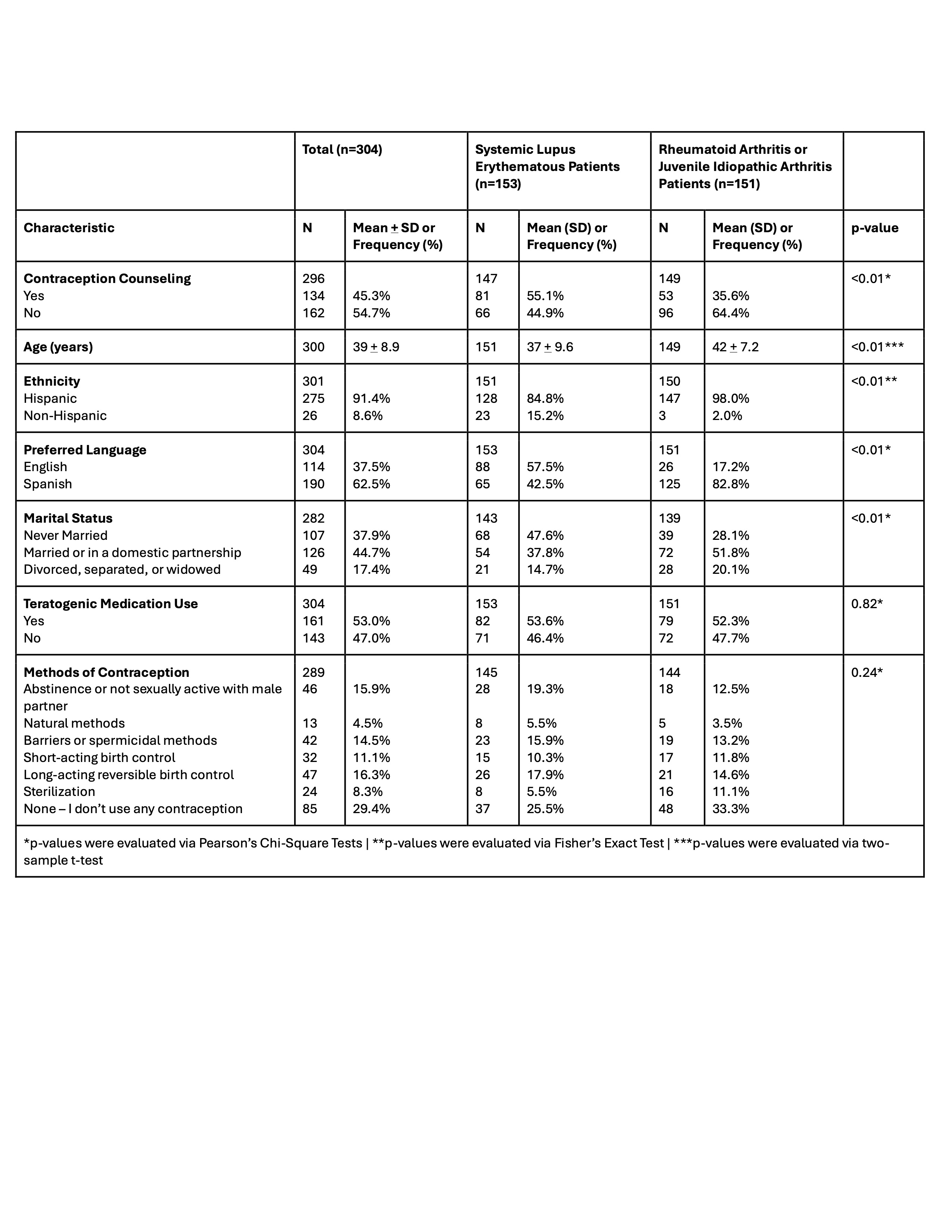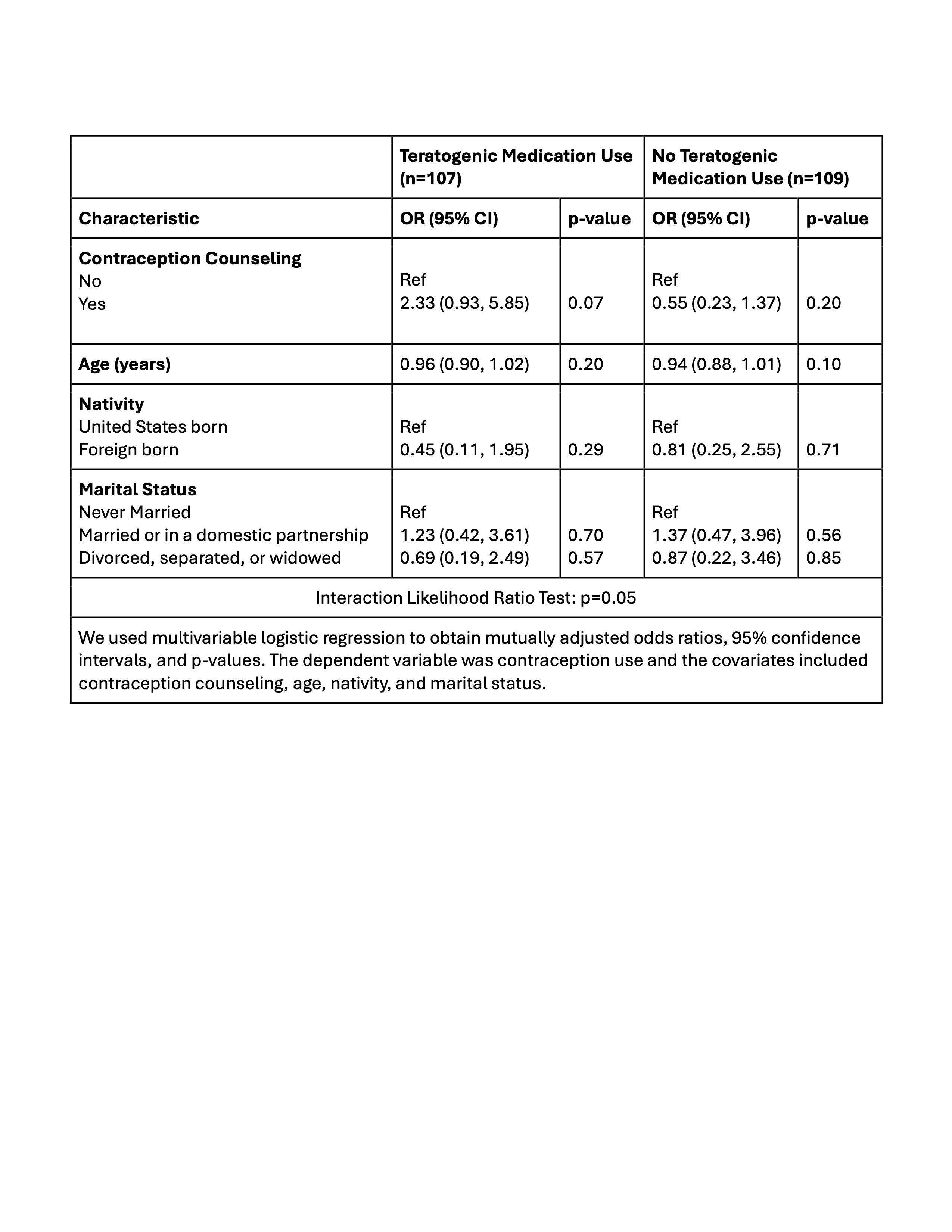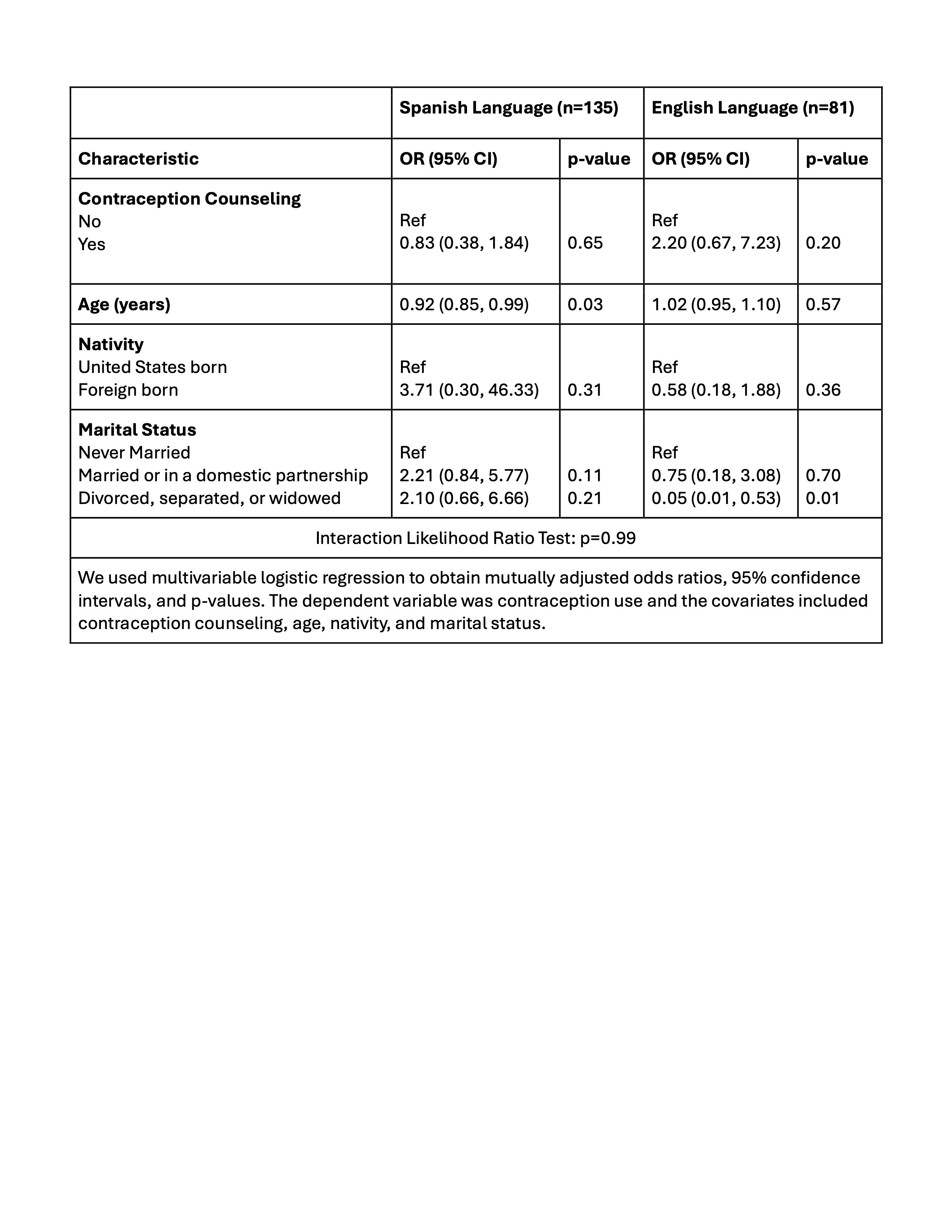Session Information
Session Type: Poster Session A
Session Time: 10:30AM-12:30PM
Background/Purpose: Systemic lupus erythematosus (SLE) and rheumatoid arthritis (RA)/juvenile idiopathic arthritis (JIA) frequently impact women of reproductive age. Management of these patients is particularly important in the setting of family planning, as several medications used in the treatment of SLE and RA/JIA are teratogenic and appropriate counseling is imperative. Data regarding contraception counseling among an urban underserved population with SLE and RA/JIA is limited. Accordingly, we investigated contraception counseling within the past year and contraception use among SLE and RA/JIA patients of reproductive age at Los Angeles General Medical Center (LAGMC), a safety-net public teaching hospital predominantly serving Hispanic patients, many of whom are Spanish-speaking.
Methods: We conducted a cross-sectional survey based at LAGMC outpatient rheumatology clinic among 153 patients with SLE and 151 patients with RA/JIA from March 2023 through December 2023 (all female; 18-50yrs old). For sexually active patients, we queried regarding a history of contraception counseling within the last year and any contraception use (versus none). We evaluated whether the relationship between contraception counseling and contraceptive use was different between patients who use teratogenic medications vs. no teratogenic medications and patients who speak predominantly Spanish vs. English. Independent two sample t-tests, Pearson’s chi-square, multivariable logistic regression, and fisher’s exact tests were used for analyses with p≤0.05 considered statistically significant.
Results: Compared to SLE patients, RA/JIA patients were older (42 years vs 37 years, p< 0.01), more likely Hispanic (98.0% vs 84.8%, p< 0.01), and preferred Spanish over English (82.8% vs 42.5%, p< 0.01) (Table 1). Over 50% of both SLE and RA/JIA patients (53.6% and 52.3%) were on teratogenic medications. The association between counseling and contraception use significantly differed by use of teratogenic medications (interaction LR test p = 0.05) (Table 2). Among patients using teratogenic medications, there was a borderline significant increase in the odds of receiving contraception counseling and use of contraceptives when adjusting for age, nativity, and marital status (OR 2.33, p=0.07). Age, nativity, and marital status as individual covariates did not appear to influence contraception use in the background of counseling and teratogenic medication use (Table 2). There was no statistically significant difference in the relationship between counseling and contraceptive use according to preferred language (Table 3).
Conclusion: Patients with SLE and RA/JIA on teratogenic medications who received contraception counseling were more likely to use contraceptives when adjusting for age, nativity, and marital status. Neither language preference (English or Spanish) demonstrated a statistically significant association between counseling and contraception use. Studies with larger cohorts of ethnically diverse patients are needed to further enhance our understanding of counseling and contraceptive use (as well as the nuances of contraception type) among underserved patient populations.
To cite this abstract in AMA style:
Kobashigawa L, Hernandez-Tamayo C, Ruddy K, Wilson M, Wise L. Contraception Counseling and Contraception Use Among SLE and RA/JIA Patients at a Public Medical Center in Los Angeles: Investigating Teratogenic Medication Use and Language Preferences [abstract]. Arthritis Rheumatol. 2024; 76 (suppl 9). https://acrabstracts.org/abstract/contraception-counseling-and-contraception-use-among-sle-and-ra-jia-patients-at-a-public-medical-center-in-los-angeles-investigating-teratogenic-medication-use-and-language-preferences/. Accessed .« Back to ACR Convergence 2024
ACR Meeting Abstracts - https://acrabstracts.org/abstract/contraception-counseling-and-contraception-use-among-sle-and-ra-jia-patients-at-a-public-medical-center-in-los-angeles-investigating-teratogenic-medication-use-and-language-preferences/



